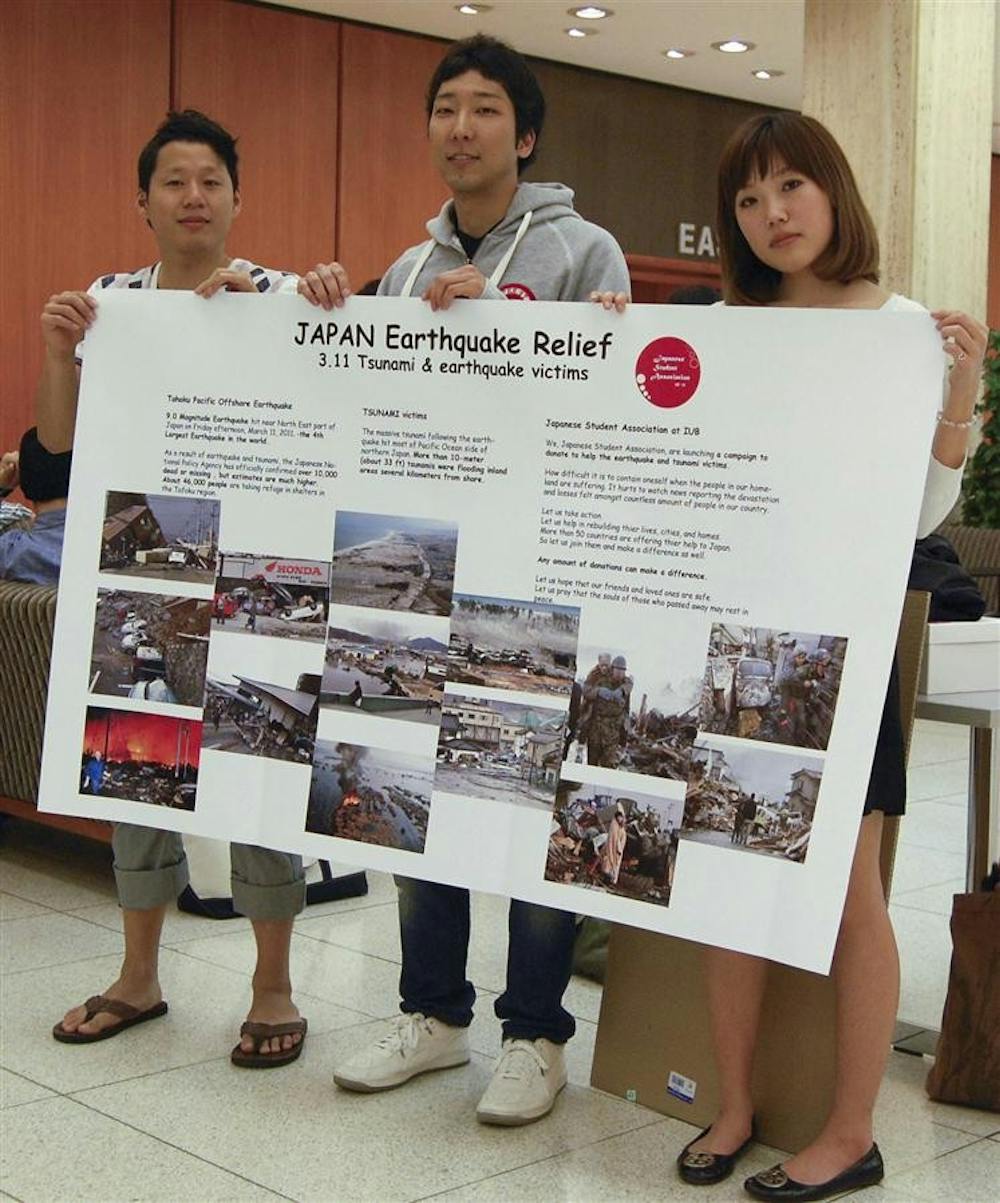News of the catastrophe in Japan slowly made its way to IU students and faculty as they were beginning a relaxing spring break.
However, relaxation became unimportant to those with limited information on vulnerable family members and friends.
Mikela Asano, a graduate student and violinist at the Jacobs School of Music, spent the first 18 years of her life in Sendai, Japan, a northeastern city hit hard by the disaster.
Asano’s parents, grandmother and other relatives are currently living on the west side of Sendai.
“When I realized the earthquake was much bigger than ones we’ve had before, I tried to reach my family,” Asano said. “But the phone line was already dead.”
A few hours later, Asano received a few brief text messages confirming her family’s safety before their phones lost charge. Her family’s situation was grim.
Asano said her family lost basic utilities such as water, heat, gas and electricity.
“Food was also an issue,” she said. “People stood outside the supermarket for hours for just a banana or two oranges.”
Shinichiro Sugiura, who goes by the name of Shinbo, is an IU athletic trainer for track and field. He has family in the Japanese city of Nagoya.
Sugiura said his family was fine mostly because Nagoya is in southern Japan.
However, his family has felt the effects of the disaster in other ways.
“They say gas prices have risen to around $6 per gallon and the risk of radiation is causing fear,” he said.
In response to the radioactive leak at the Fukushima Daiichi nuclear plant, many Japanese are taking precautions to avoid exposure to radiation.
Sugiura said his family is drinking bottled water instead of tap water and must be cautious about the origin of native produce and dairy products.
“I have a cousin who is also safe because he lives in Tokyo,” Sugiura said. “He told me the city is cutting power every day from 3 p.m. to 6 p.m. to prevent a major power
outage.”
Although Asano and Sugiura’s families are OK, many are not. The confirmed death toll in Japan has exceeded 10,000, and almost 15,000 people remain unaccounted for.
“There are so many victims in really bad conditions,” Asano said. “There are people without homes, clean bathrooms, medicine and enough food and water. I cannot imagine how stressful their lives are.”
IU students and faculty from the Japanese Student Association, Asian Culture Center, Leo R. Dowling International Center, IU Alumni Association International and other organizations on campus met last week to make plans for providing aid to Japan.
Sugiura made an effort to inform his colleagues of ways they can help.
“I sent out an email to everyone in the athletics department suggesting a trustworthy way to donate funds to Japan,” Sugiura said.
“The Japan Earthquake Relief Fund was set up by the Japan American
Society of Indiana, and they do a good job of getting donations to where they are most needed.”
The Japanese Student Association, led by President Kentaro Hirano, is in the process of arranging fundraising events and donation locations in popular places on
campus.
“Unless you’re a student that knows about Japan or Japanese culture, you wouldn’t understand the extent of this event,” Hirano said. “Our job is to provide people who don’t know about this situation a starting point to realize what’s going on in Japan.”
Hirano said JSA must act immediately to raise awareness. However, he also emphasized that their effort would last through the semester in the form of small events that will generate one big contribution.
“My hope is that people who are now urging to help Japanese people do not lose their motivation and sincerity over a long period of time,” Asano said.
“It is going to take many years to recover everything that has been affected, including, and most importantly, people’s hearts.”
Disaster in Japan hits home

Get stories like this in your inbox
Subscribe





